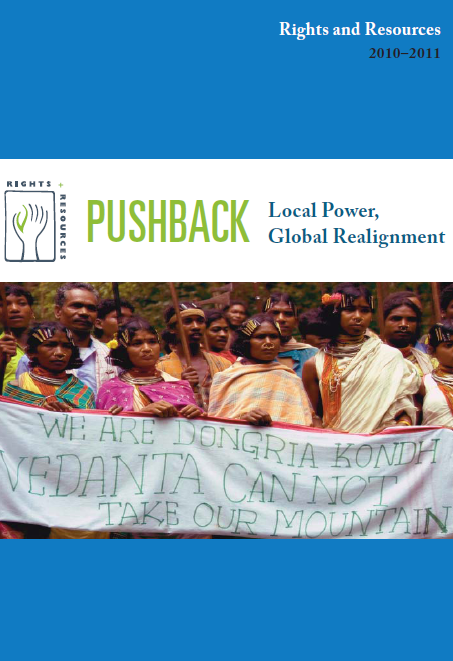Focal point
Location
The Rights and Resources Initiative is a strategic coalition of international, regional and community organizations engaged in development, research and conservation. Together, we are working to encourage greater global commitment and action on pro-poor tenure, policy and market reforms.
The RRI coalition is formed by a group of core Partners who conduct work in specific areas of their regional and thematic expertise. Partners also engage with a wide group of collaborators who participate in and support RRI activities around the world. RRI is a strategic coalition that goes beyond the traditional set of international development actors to involve a wide spectrum of organizations, each of which provides a critical perspective in the larger chain of actors necessary to advance change.
Our Mission
RRI’s Mission is to support local communities’ and indigenous peoples’ struggles against poverty and marginalization by promoting greater global commitment and action towards policy, market and legal reforms that secure their rights to own, control and benefit from natural resources, especially land and forests.
Global Challenge, a Global Opportunity
Forests cover close to 30 percent of the world's land area, and more than a billion people rely on forests to a significant extent for their food, fuel and income.
An estimated 350 million indigenous and tribal peoples are at least partly dependent on forests, including some 60 million who are substantially dependent on forests for their subsistence and livelihoods. Forests are also particularly important to poor women, who shoulder much of the burden for hauling wood and collecting and marketing forest products.
Dominant models of forest industry and conservation have often exacerbated poverty and social conflicts and have precluded pro-poor economic growth. The lack of clear rights to own and use forest land, develop enterprises, and trade in forest products has driven millions of forest dwellers to poverty and encouraged widespread illegal logging and forest loss.
The world will not meet national and global goals to reduce poverty and protect the environment unless poor peoples' rights to land and resources are strengthened. Neither will the world effectively mitigate or adapt to climate change without clarifying local tenure and governance. The next two decades are critical--both for the poor and for the forests.
There are reasons for optimism. Organizations of indigenous peoples and forest-dwelling communities are gaining voice and opportunity, and after decades of limited action many countries are beginning to consider far-reaching legal and policy reforms. There is a major opportunity to advance the rights and livelihoods of forest peoples by establishing the institutional foundations for sustained conservation and forest-based economic development.
Resources
Displaying 106 - 109 of 109Rights and Resources Dialogue Series on Forests, Governance, and Climate Change
High-quality speakers and panels. From 2009. Some of the meetings have recorded webcasts available online.
Rights and Resources Initiative
A global coalition of 14 Partners and over 120 international, regional and community organizations advancing forest tenure, policy, and market reforms.....
Core Beliefs:
"Based on our experience, we find that empowerment of rural people and asset-based development are part of a process that is dependent on a set of enabling conditions, including security of tenure to access and use natural resources. As a coalition of diverse and varied organizations, RRI is guided by a set of core beliefs...
Rights of Poor Communities Must Be Recognized and Strengthened:
Recognizing Indigenous Peoples’ and Community Land Rights to Limit Deforestation Is Cost-Effective Approach to Fight Poverty, Climate Change
NEW YORK (17 September, 2014)—US$1.64 billion, the funds pledged to date by three major multi-lateral initiatives at the United Nations and World Bank in preparing for the evolving REDD+ carbon market, would expand the demarcation, registration, and titling of rights of the local communities and Indigenous Peoples living on 450 million hectares, an area almost half the size of Europe, according to new research released by the Rights and Resources Initiative (RRI) and Tebtebba (Indigenous Peoples’ International Centre for Policy Research and Education).
PUSHBACK: Local Power, Global Realignment
If 2009 was the end of the hinterland and the beginning of a new globalized forest era, 2010 was a year of pushback. Worldwide, the news was full of reports of forest communities and Indigenous Peoples pushing back at land grabs and shaping policy at the national and global levels, and of governments countering and trying to contain community rights. Some governments and private investors accepted or even embraced the new players at the table and began to promote fairer business and conservation models.






